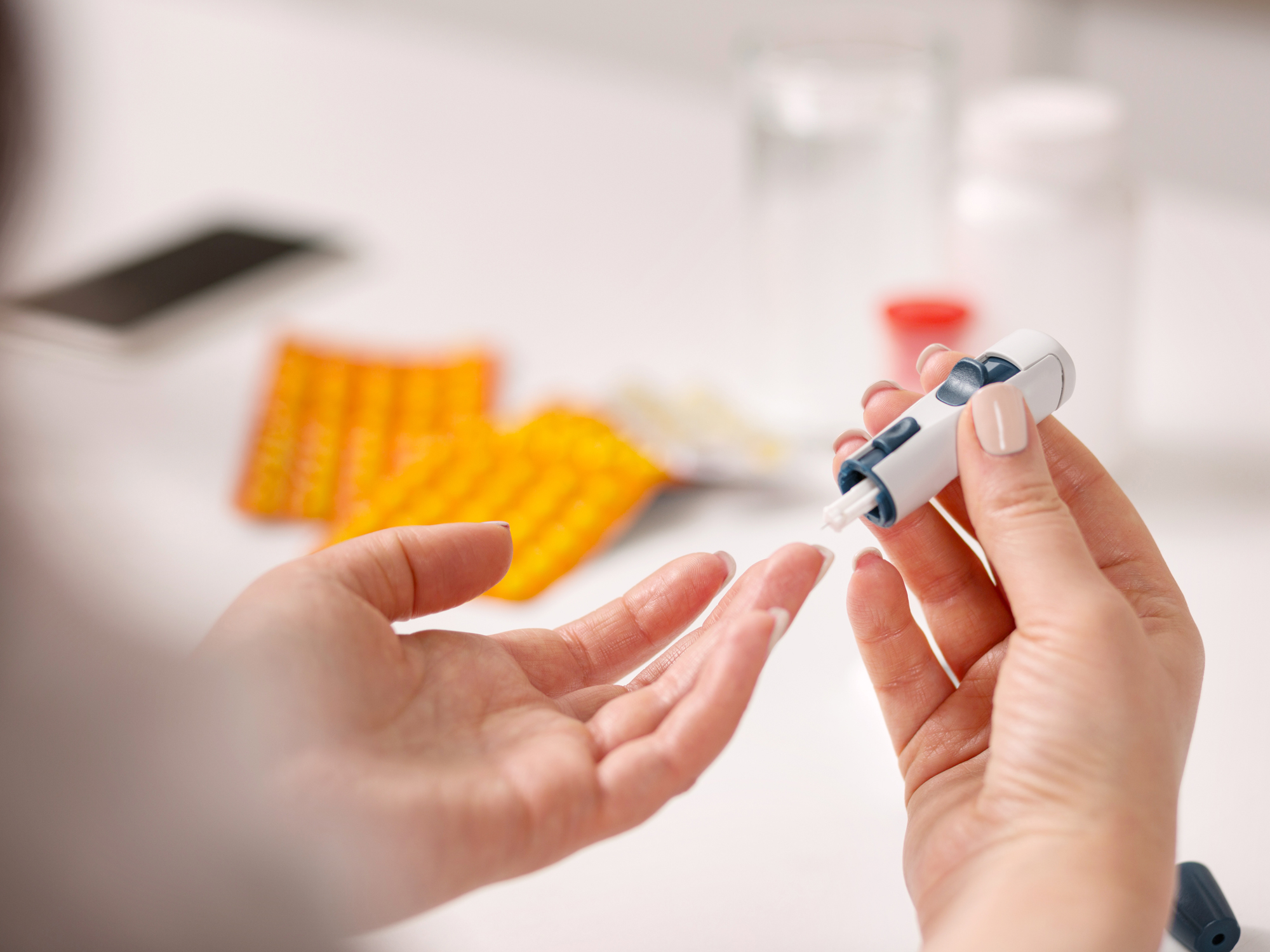Get Easy Health Digest™ in your inbox and don’t miss a thing when you subscribe today. Plus, get the free bonus report, Mother Nature’s Tips, Tricks and Remedies for Cholesterol, Blood Pressure & Blood Sugar as my way of saying welcome to the community!
The vitamin that slashes diabetes risk by nearly 70 percent

It’s a scientific fact that chronic inflammation contributes to most major diseases… and type 2 diabetes is no different.
Research shows that people with diabetes have overreactive immune systems that keep their bodies littered with inflammatory chemicals. This inflammation drives insulin resistance which leads to type 2 diabetes. And insulin resistance creates more inflammation. So, it’s a vicious cycle.
It makes sense then that the same inflammation-fighting vitamin that reduces your risk of nearly every other disease under the sun also takes a bite out of your diabetes risk.
You know the vitamin I’m talking about… that amazing, dependable disease-fighting D.
How vitamin D lowers diabetes risk
A recent study from researchers at the University of California San Diego School of Medicine and Seoul National University found that vitamin D deficiency puts you at a much higher risk of developing type 2 diabetes.
The study included 903 healthy adults who’s mean age was 74. When researchers began tracking their health between 1997 and 1999, none of the study participants had diabetes or prediabetes. But when the study ended in 2009, 47 people had diabetes and 337 had prediabetes.
What caused these individuals to develop blood sugar problems while others remained in the clear? Well, vitamin D levels seemed to have something to do with it.
People with vitamin D levels that were 30 ng/ml or higher slashed their risk of diabetes by about 66 percent. And people with vitamin D levels that were 50 ng/ml slashed their risk by roughly 80 percent.
Does that mean getting more vitamin D can prevent type 2 diabetes? Or keep prediabetes from becoming full-blown diabetes?
Well, researchers can’t say that for sure. But there’s clearly a connection between the two. Hopefully, future research will go one step further, so you know with certainty that vitamin D supplements can help you fight diabetes and how much to take.
How much D does the job?
Cedric F. Garland, the researcher who co-authored this study, is an adjunct professor in the UC San Diego School of Medicine Department of Family Medicine and Public Health and a longtime advocate of the health benefits of vitamin D.
He recommends maintaining vitamin D levels of at least 30 ng/ml (although, some say levels of 50 ng/ml are truly optimum).
You can have your vitamin D levels tested to see where you’re at. But in general, Garland says you’d have to take about 3,000 to 5,000 international units (IU) of D3 per day to reach and maintain that level. Of course, if you get 10-15 minutes of sun every day outdoors at noon with a good amount of skin exposed, he says you can take less.
Vitamin D is safe at pretty high doses, so you don’t have to worry about getting too much if you’re following Garland’s advice…. even if you take a supplement and get some sun daily. As long as your vitamin D levels don’t exceed 125 ng/ml, you should stay safe and healthy… and hopefully protected against diabetes.
Editor’s note: Are you feeling unusually tired? You may think this is normal aging, but the problem could be your master hormone. When it’s not working, your risk of age-related diseases skyrockets. To reset what many call “the trigger for all disease” and live better, longer, click here to discover The Insulin Factor: How to Repair Your Body’s Master Controller and Conquer Chronic Disease!
Sources:
- Does Inflammation Trigger Insulin Resistance and Diabetes? — Scientific American. Retrieved April 24, 2018.
- Vitamin D deficiency linked to greater risk of diabetes — MedicalXpress. Retrieved April 24, 2018.
- K. Park, et al. “Plasma 25-hydroxyvitamin D concentration and risk of type 2 diabetes and pre-diabetes: 12-year cohort study.” — PLOS ONE, 2018.













